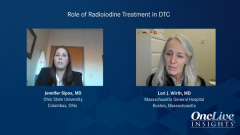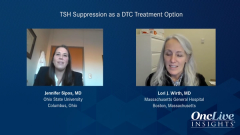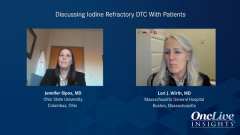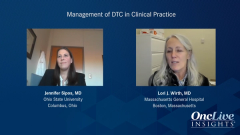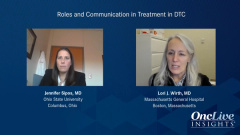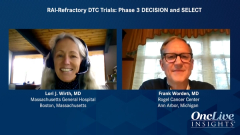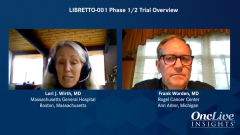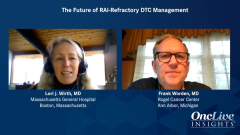
Advice for Managing RAI-Refractory DTC
Episodes in this series

Lori J. Wirth, MD: Molecular diagnostics in oncology is complicated, and thyroid cancer is certainly complicated. In addition to what we’ve talked about today, in medullary thyroid cancer we’re talking about somatic and germline mutation, which is important. It’s hard for a busy person to drop what they’re doing, run to the computer, and try to sift through all the literature to figure out what is the best test for this patient with radioactive iodine-refractory differentiated thyroid cancer. What would be your one-liner piece of advice for somebody who doesn’t see these patients often in their clinical practice but might see one coming into the clinic tomorrow?
Frank Worden, MD: In this day and age, because we have the drugs that we’ve been talking about here today, we should sequence all of these patients up front. Now that we have agents that actually respond to these genetic drivers and the tolerability—the adverse effect profiles—can be much better, we should be sequencing all patients. Then if there are NTRK fusions or RET fusions of the differentiated thyroid cancers, my approach would be to treat with these agents up front and save the multikinase inhibitors as second-line agents. The field of thyroid oncology should move in that direction.
Transcript edited for clarity.



